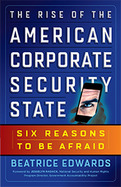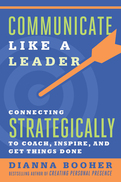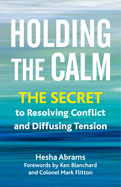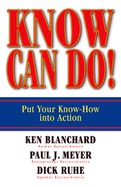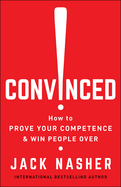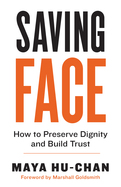Edward Snowden's dramatic NSA revelations are only the tip of an iceberg that threatens to sink the Constitution.
* Written by the executive director of one of the organizations representing Edward Snowden in the United States
* Warns that government-corporate "cooperation" in gathering intelligence has fueled an enormous erosion of our civil liberties
* Links the blurring of lines between government and business with the failure to prosecute those responsible for the 2008 economic collapse
Edward Snowden's dramatic NSA revelations are only the tip of an iceberg that threatens to sink the Constitution. As Beatrice Edwards reveals, a host of government agencies are rendering our Bill of Rights meaningless by heavy surveillance of average citizens, political persecution of dissenters, and the threat of indefinite detention now codified into law. Corporations assist and reap handsome profits as a result-70 percent of the $56.2 billion US intelligence budget is paid to private contractors.
As a result, we now live in a Corporate Security State where the government is more interested in safeguarding the health of the companies that serve it than the citizens who support it. How did we get here? And is there a way out?
Edwards lays out the steps intelligence agencies took in the wake of 9/11 to illegitimately extend their reach (and their budgets). Private corporations were only too eager to supply them with the latest surveillance technology and consumer data, essentially becoming an unofficial, and unaccountable, extension of those agencies. Edwards shows how the government has concealed its actions by greatly expanding both the classification of documents-the Obama administration has refused more Freedom of Information Act requests than Bush's-and the prosecution of whistleblowers, many of whom she has worked with personally.
Further, she exposes how the bogus claim of an imminent "cyber war" is being used to justify businesses spying on employees and customers, as well as government and business sharing their ill-gotten information. This is why the Justice Department isn't going after the corporations responsible for the financial collapse of 2008-as Edwards shows, all too often they're partners in crime.
But she offers a plan for fighting back-steps we can demand to restore transparency to government, keep private information private, and make democracy a reality once again.
People often get promoted to leadership positions without knowing how to communicate an inspiring strategic vision to the people who report to them. So they focus on what they know: tactics, not strategy. As a result, they become stuck in micromanagement mode.
Dianna Booher wants to prevent micromanagement before it happens by providing you with the right leadership communication skills. Grounded in extensive research, this book offers practical guidelines to help professionals think, coach, converse, speak, write, meet, and negotiate strategically to deliver results. In thirty-six brief chapters, Booher shows you how to communicate effectively to audiences up and down the organization so you can fulfill your most essential responsibilities as a leader.
2022
How do you stop conflict? Settle disputes? Handle someone who is yelling at you, crying, or just won't speak? How do you find a solution when a solution seems impossible? Holding the Calm shares the secrets that enable everyone to avoid, minimize, or resolve conflict.
Popular master mediator Hesha Abrams has tens of thousands of hours in the trenches mediating human conflict, and she shares her pragmatic wisdom in digestible bites that detail how to improve situations and solve difficult problems between human beings, from family and workplace disputes to complex commercial and global conflicts. Learn how to
• Speak into the ears that hear you
• Be the grown-up in the room
• Listen to what is not said
• Create small, winnable victories
Practical, inspirational, and full of accessible tools you can use right now, Holding the Calm proves that you don't need an advanced degree or certification to minimize challenges and defuse tension between real people, businesses, and countries.
2007
• From bestselling author Ken Blanchard, whose books have sold more than 18 million copies worldwide
• Offers a foolproof method for putting your knowledge into practice
• Written in the entertaining fable format Blanchard made famous
2018
Nasher offers the example of Joshua Bell, possibly the world's most famous violinist. In January 2007, at rush hour, he stepped into a Washington, DC, subway station, dressed like any street busker, and began to play a $4,000,000 Stradivarius. It was part of an experiment staged by a journalist of the Washington Post, who expected Bell's skill alone to attract an immense, awed crowd. But Bell was generally ignored, and when he stopped, nobody applauded. He made $34.17.
The good news is that you don't have to accept obscurity: you can positively affect others' perception of your talent. Whether you're looking for work, giving an important presentation, seeking clients or customers for your business, or vying for a promotion, Nasher explains how to use techniques such as expectation management, verbal and nonverbal communication, the Halo Effect, competence framing, and the power of nonconformity to gain control of how others perceive you.
Competence is the most highly valued professional trait. But it's not enough to be competent, you have to convey your competence. With Nasher's help you can showcase your expertise, receive the recognition you deserve, and achieve lasting success.
2020
—Frances Hesselbein, former CEO, Girl Scouts of the USA, and Presidential Medal of Freedom recipient
Organizations now need to attract, retain, and motivate teams and employees across distance, time zones, and cultural differences. Building authentic and lasting human relations may be the most important calling for leaders in this century. According to management and global leadership specialist Maya Hu-Chan, the concept of “saving face” can help any leader preserve dignity and create more empathetic cross-cultural relationships.
“Face” represents one's self-esteem, self-worth, identity, reputation, status, pride, and dignity. Saving face is often understood as saving someone from embarrassment, but it's also about developing an understanding of the background and motivations of others to discover the unique facets we all possess. Without that understanding, we risk causing others to lose face without even knowing it. Hu-Chan explains saving face through anecdotes and practical tools, such as her BUILD leadership model (Benevolence, Understanding, Interacting, Learning, and Delivery). This book illustrates how we can give face to create positive first impressions, avoid causing others to lose face, and, most importantly, build trust and lasting relationships inside and outside the workplace.


